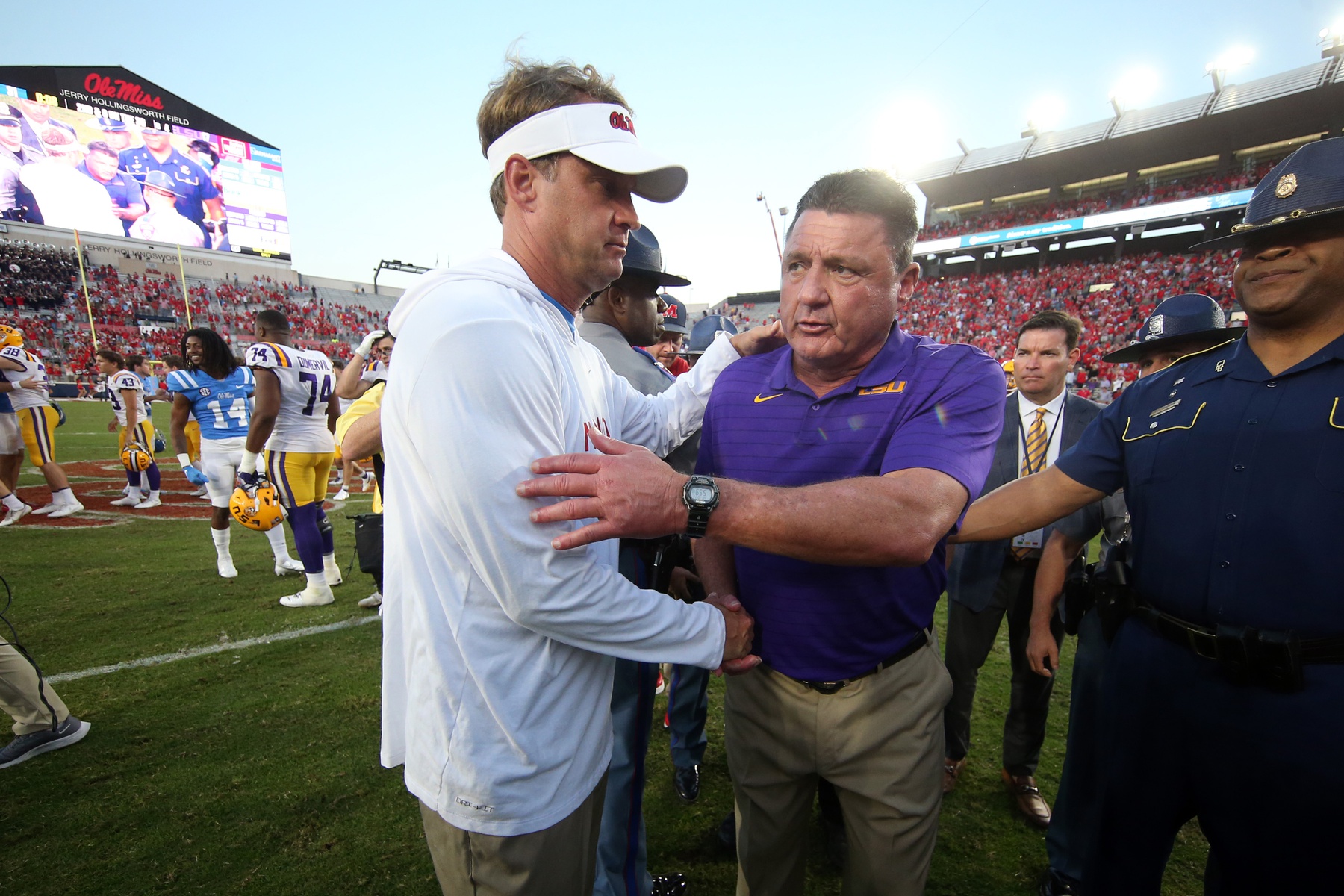
The biggest question surrounding LSU going into Saturday’s game at No. 12 Ole Miss was which Tigers team would show up.
Would it play like the one that had its best performance of the season in a 49-42 upset victory against then-No. 20 Florida just 7 days earlier?
Or would it play more like the one that was bullied in a 42-21 loss at then-No. 16 Kentucky 14 days earlier?
It turned out the Tigers simulated both of those performances at different times, though it mostly looked like the Kentucky version as the Rebels rolled to a 31-17 victory.
LSU picked up where it left off against Florida, but it couldn’t sustain that level of performance.
When the game began, the Tigers were focused, Max Johnson was sharp and Ty Davis-Price found adequate running room as LSU marched 90 yards to a touchdown on the game’s 1st possession.
The defense forced a 3-and-out, and the Tigers drove 70 yards to a 4th and goal at the 3.
Suddenly, it seemed that performance against Florida might have been more of a turning point than an outlier.
Then everything changed.
Ed Orgeron, coaching his 1st game as a lame duck, passed on an extra point-length field goal and an almost certain momentum-maintaining 10-0 lead and chose to go for a touchdown.
Johnson threw an interception at the 1, and suddenly the resemblance to the team that beat Florida started fading fast.
Afterward, Orgeron would say, “We couldn’t capitalize when we needed to.”
Certainly, passing on the all but certain field helped prevent the Tigers from capitalizing on that scoring opportunity.
Then they started looking like the team that was beaten by Kentucky.
Ole Miss drove 74 yards for a field goal. It drove to touchdowns in its other 2 possessions in the 1st half to take a 17-7 lead that felt bigger.
The Rebels looked like the SEC West contender that they are. The Tigers looked like the SEC West cellar contender that they have become.
The Rebels shut down the Tigers’ running game and harassed Johnson.
They forced a punt on the 1st possession of the 3rd quarter, then drove to another touchdown and were cruising with a 24-7 lead.
After that, the outcome was decided, though the final score was still fluid enough to leave a misleading impression.
The Rebels pushed the Tigers around just like Kentucky pushed them around in the performance that convinced the LSU brass that it was time to fire Orgeron, a decision that was so clear that even the eye-opening performance against the Gators couldn’t change it.
Ole Miss, even with Matt Corral beat up and reluctant to run, still ran for 266 yards. LSU, which ran for more than 300 yards against Florida as Davis-Price ran for a school-record 287 yards, had a mere 77 yards on the ground.
If athletic director Scott Woodward and the rest of the Tigers’ decision-makers looked at the game as an audition for Rebels coach Lane Kiffin as a possible replacement for Orgeron, they would have ridden a roller-coaster.
LSU looked better prepared than Ole Miss, providing no evidence that Kiffin was the guy the Tigers should target in their coaching search.
But Kiffin’s team blitzed Orgeron’s team 31-0 in the 2nd and 3rd quarters.
Once things started turning in the Rebels’ favor, the Tigers were helpless to turn them back, even though a field goal, fumble recovery and touchdown in a late 2-minute stretch made the final score more respectable for LSU.
Ole Miss beat LSU on both lines of scrimmage.
As a result, it ran the ball very well and stopped the run very well.
It had better quarterback play, better backs and receivers and better defense.
And it had better coaching, as evidenced by how much better the Rebels got and how much worse the Tigers got as the game wore on.
The win against Florida was a memorable distraction for LSU.
But the loss to Ole Miss was a return to reality.
Orgeron said he thought his team “came ready to play.”
It did.
But when the slow-starting Rebels started playing to their standard, LSU couldn’t keep up.
Les East is a New Orleans-based football writer who covers LSU for SaturdayDownSouth.com. Follow him on Twitter @Les_East.







